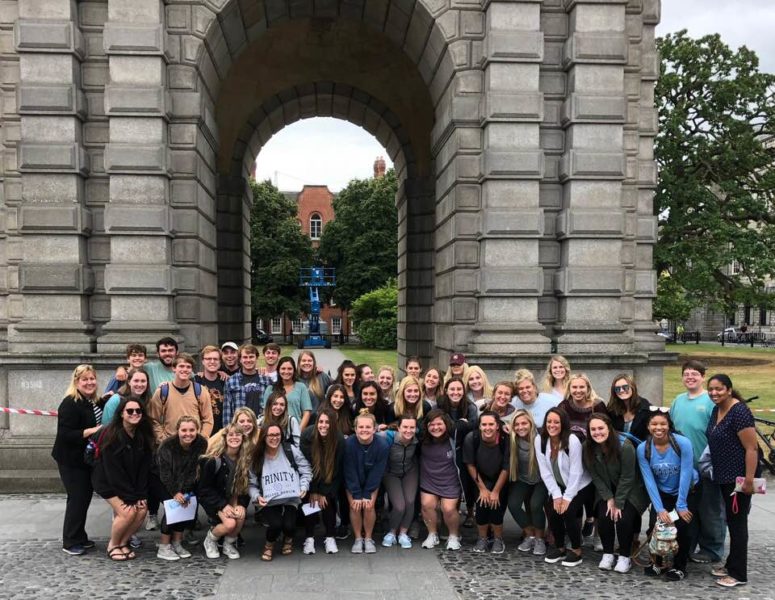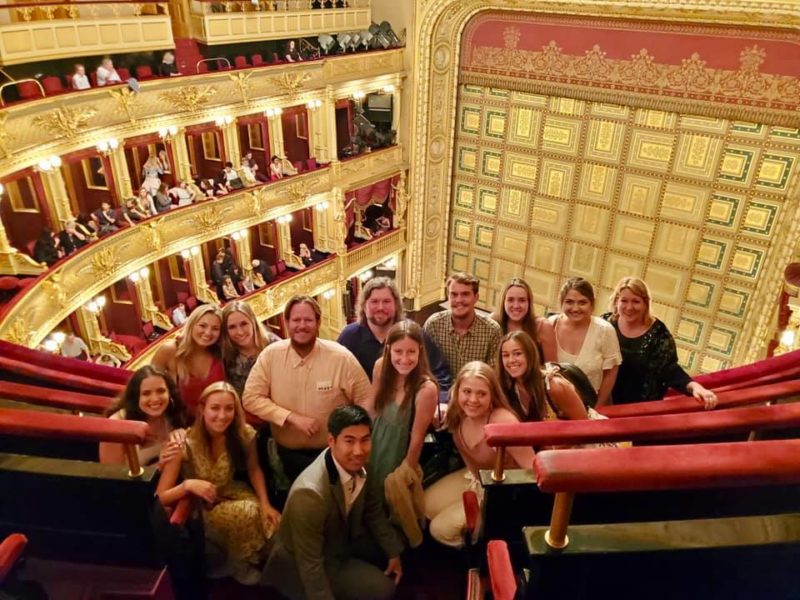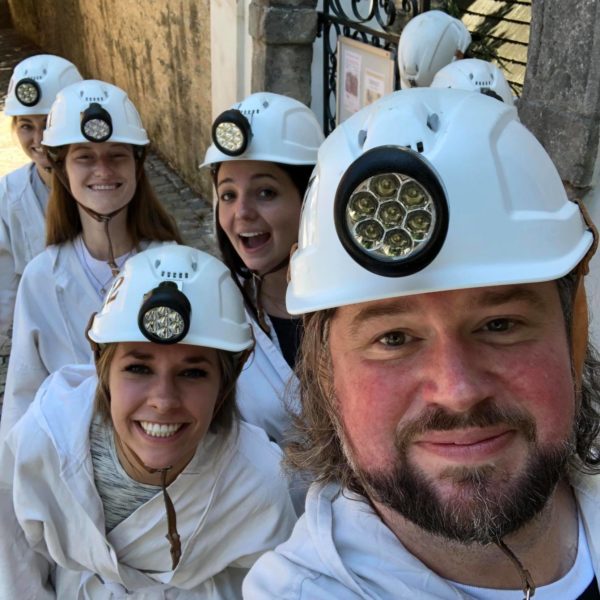
In the first of an upcoming series getting to know some of the faculty who have had their programs facilitated by AIFS in recent years, we chat to Jason Cain, Asst. Professor at the University of Mississippi. Jason brought 47 students to Ireland in Summer 2018, and 60 students to Prague in 2019, teaching a course on Internet and Mobile Media.
Did you study abroad as a student? Do you feel that it has influenced your college experience and/or your career?
I never did as a student, but I did as a graduate assistant from 2011 to 2014 for the College of Journalism and Communications at the University of Florida. Getting experience with that is why I was able to start a program here at Mississippi, I believe.
What motivated you to bring students abroad?
I never could afford to study abroad when I was an undergraduate. While I was at Florida, I was able to see how Dr. Mike Weigold and AIFS created programs that were packed with great experiences and classes that unquestionably would fit in a student’s degree plan all at a really great price. In some cases, the cost of six hours of credit was only slightly more than attending summer school plus a plane ticket.
Secondly, I never travelled abroad until that first UF program in Italy, and it changed my life, even at 31 and having been on my own and having lived in Nashville and Austin by that time. I came back more hungry than ever to see more of the world and much more confident about my ability to meet people all over it.
When I got hired at Ole Miss, I recognized the student profile in the School of Journalism and New Media was quite a bit like UF. I understood how to recruit for larger programs, and I had come to look at AIFS as good friends as well as a great partner organization. It really seemed all the pieces were there to provide an experience to undergraduates like myself who wanted to study abroad but never found programs that quite seemed to make sense as far as the finances and/or course offerings.
It’s real easy in the United States to look at university as job training, and I do think it is valuable in that regard. However, I think that should be one of the outcomes of opening a student’s mind to possibilities, growing their confidence in being able to think on their feet and figure things out on their own, and growing their perspectives beyond the places they grew up. I really believe that, regardless of your degree, creative, agile thinkers who believe they are capable at thriving in new situations end up winning in the long run in their careers and just in general in their lives.
I believe strongly that finding yourself somewhere completely different for an extended period of time develops those attributes for an undergraduate perhaps faster than anything else they can do in college. It did it for me in my 30s; so I strongly believe having that even earlier is all the more meaningful.

How did your destination(s) complement your teaching?
I think a lot of students are interested in possibly working internationally, but in my field of mass communications, that environment changes wildly from country to country. How people talk to one another, and the customs and laws that create the space in which that communication happens is in some ways the same and some ways very different. Spending a month actually interacting with people in another country is a real eye-opening experience for students. I believe it changes them from thinking locally or nationally to thinking globally.
What is your favorite part about leading students on a customized study abroad program?
Watching them figure things out, really. There’s a shift over the four weeks from kind of controlled chaos into realizing they aren’t just on vacation to, by the end, feeling a real part of where they are. Getting to actually know students is great on its own, but you also start to see them turning into who they will be after they graduate. Every summer I do it, I come back reinvigorated about my chosen career.

Has your experience teaching abroad changed the way you teach back on campus?
Definitely. I know the students much better, and I learn a ton about what is good about our program and what could be improved. It also keeps me from growing cynical about teaching. I learn that the hopes and concerns of your average 20-something are about the same as they ever were. It keeps me in touch with that part of me who was once a student too.
Describe a favorite moment or memory of your program?

This is actually really hard because there are so many.
I think if I had to pick one that I’d be the most sad to not have would be the trip we took in 2019 to the Kutna Hora Silver Mines. I’m not particularly claustrophobic, and even I found the tight spaces in the mines below at time anxiety inducing. We were all a little shaken by the experience – which I 100% recommend, as it was a visceral demonstration of what the miners endured. We were all rather excited to see daylight.
You have to walk back from the mine exit up a hill to the entrance when the tour ends. You are in full kit, a helmet, mining light, and these odd, 15th Century white robes like the miners wore. Off the top of my head, I started singing the line, “At first I was afraid, I was petrified,” from Gloria Gaynor’s hit song “I Will Survive.” A student next to me started singing along. By the chorus, all 25 of us were singing the song walking back up the hill while the people in the town were laughing. It’s definitely one of my favorite little moments from over the years.
Was there anything you found challenging about the experience of teaching on a customized program?
I think the main thing is learning to trust your students to be adults. If you treat them like children, they will act like it. I think often the first inclination for a student is to get someone to handle anything they find disruptive. You really have to sit back and give them time to go through being frustrated and then realize they need to figure it out. Nine times out of ten, they can solve their own problems without faculty or staff intervening. Those are some of the most important lessons they learn.
Any advice for faculty thinking of leading a customized program abroad?
Piggybacking off the above answer, remember you have a partner while there. I’ve had a couple of real emergencies that came up over the course of the trips, ranging from lost passports to medical emergencies. AIFS shines in these moments and knows what to do. You never have to worry about there being a plan because there always is. Make sure you establish good communication channels and keep up with what is going on. As long as you do that, in my experience, you’ll be ready for anything unexpected that comes your way as a faculty lead.
Where would you like to visit next, either for vacation or for a faculty-led program?
I’m still planning to make-up the Italy trip we missed this year. I’m very interested in trying a Spain/Portugal trip in the future and am also interested in the viability of an Australia program in maybe 2022.
As far as vacation, I’d love to get back to Scandinavia. I loved the few days I got to spend in Sweden and would love to see more of that part of Europe.